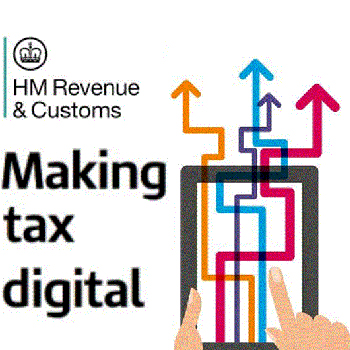As part of the UK’s ongoing commitment to sustainability and reducing carbon emissions, the tax system for electric, zero, and low-emission vehicles is undergoing a significant change. Starting from 1st April 2025, there will be vehicle tax changes for both businesses and individuals who own or are looking to purchase electric vehicles and you will be required to pay Vehicle Excise Duty (VED) in the same way as petrol and diesel vehicle owners.
As these changes are set to impact both businesses and individuals, it’s important to understand how these adjustments will affect your vehicle tax obligations and financial planning. We will go through the key changes and how they might affect your business fleet or personal vehicles.
What is Vehicle Excise Duty (VED)?
Vehicle Excise Duty, commonly known as road tax, is a tax that every vehicle owner in the UK must pay to legally drive their vehicle on public roads. The rate is typically based on the car’s CO2 emissions, with higher rates for more polluting vehicles. Electric vehicles (EVs), being zero-emission, have enjoyed an exemption from VED. This has been one of the key incentives for drivers making the switch to electric.
However, the government has announced that from 1st April 2025, electric vehicles will no longer be exempt from VED. This means that both new and existing electric vehicle owners will need to factor this new tax into their running costs.
What’s changing in vehicle tax for electric vehicles?
Here’s a breakdown of the changes to vehicle tax for electric, zero-emission, and low-emission vehicles starting 1st April 2025:
- Electric, zero, or low emission cars registered on or after 1st April 2025
- New electric cars will pay a £10 first-year tax rate.
- From the second year onwards, the tax will increase to the standard annual rate of £195.
This change brings electric cars into line with the tax system for petrol and diesel vehicles. The first-year rate remains relatively low at £10, making the transition a bit easier financially.
2. Electric, zero, or low emission cars registered between 1st April 2017 and 31st March 2025
- If your electric vehicle was registered during this period, it will be subject to the standard annual VED rate of £195 from 1st April 2025 onwards.
This will apply to most EVs already on the road. This means many businesses and individuals with EVs purchased before the 2025 changes will see no further tax advantage.
3. Electric, zero, or low emission cars registered between 1st March 2001 and 31st March 2017
- These vehicles will be moved to the first available tax band, which will be £20.
Older electric vehicles that were previously exempt will now fall into the £20 tax band. This is still lower than many petrol or diesel vehicles, it’s a change that many owners of older EVs will need to account for.
Electric vans
For businesses that rely on electric vans, there’s also a change in the vehicle tax structure:
- Most electric vans will now move to the standard annual rate for light goods vehicles.
You can check the current rates for more specific information on the government website here: https://www.gov.uk/vehicle-tax-rate-tables/other-vehicle-tax-rates
This change ensures that electric vans are taxed similarly to their petrol or diesel vans but without the ongoing exemption that many businesses have enjoyed.
Electric motorcycles
If your business uses electric motorcycles or tricycles, the tax structure is also being updated:
- Electric motorcycles and tricycles will be subject to the annual rate for the smallest engine size.
As with electric vans, this ensures that electric motorcycles are taxed on a comparable basis to traditional vehicles.
Make sure to check the specific rates for electric motorcycles on the gov.uk website here: https://www.gov.uk/vehicle-tax-rate-tables/other-vehicle-tax-rates
Luxury car tax
A new addition to the tax system is the expensive car supplement. This will affect new electric and zero-emission vehicles that are registered on or after 1st April 2025, where the list price exceeds £40,000. These vehicles will be subject to:
- The standard VED rate of £195, plus
- An additional supplement for the first five years from the start of the second tax payment.
If your business is considering purchasing high-end electric vehicles for your fleet, this additional cost could impact your overall budget for vehicle procurement. Keep this in mind when assessing potential vehicle purchases in 2025.
How will these changes affect your business?
For businesses with electric vehicles (EVs), the changes to VED from April 2025 will likely lead to increased vehicle tax costs. The first-year rate for new electric cars remains relatively low at £10. However, the second-year tax of £195 will become the norm for most electric vehicles.
These changes should be considered as part of your overall fleet management and tax planning strategy. For businesses that have relied on the tax exemptions for electric vehicles, the removal of the £0 VED rate could increase the overall cost of operating an electric fleet.
How can we help?
At Future Cloud, we can help you navigate the new vehicle tax system, ensuring you’re making the most informed decisions for your fleet. If you have any questions about the new road tax changes, or how it will affect your business, get in touch with our team today.
And don’t forget to follow us on social media for the latest updates, tips, and more!


